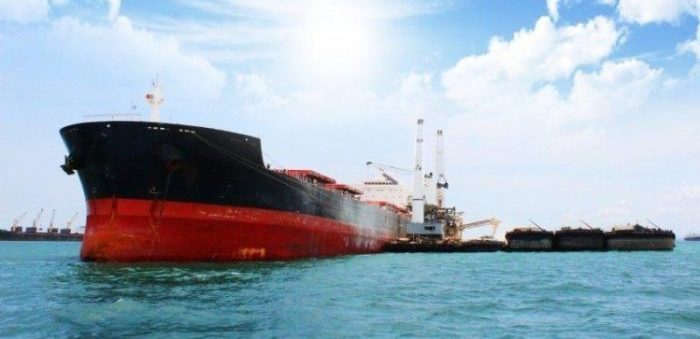North continues to see issues and misunderstandings with regard the ventilation of bulk cargoes, explains John Southam in SeaSense column, our special column in association with the North P&I Club.
With the Brazilian Soya Bean harvest season upon us again, here is a quick reminder on how to ventilate grain or any hygroscopic cargo effectively and safely.
Why ventilate?
Prevention of ship’s sweat is probably the most common reason for ventilating. However, it seems to be the one which causes seafarers and ship operators the most problems.
When should I ventilate?
There are two rules that may help a seafarer decide whether to ventilate a ship’s hold.
- Dew-point rule: Ventilate when the dew point of the outside air is lower than the dew point of the air in the hold.
- Three-degree rule: Ventilate a hygroscopic cargo if the temperature of the outside air is at least 3°C below that of the cargo temperature (taken at loading).
If either of these criteria are satisfied, then the hold should be ventilated so long as factors such as heavy spray do not prevent ventilation. In short, it is likely that ventilation will only be appropriate when a warm cargo is being carried into cooler weather. If a comparison of dew points indicates that ventilation is appropriate, but the temperature of the outside air appears to be too warm in relation to the cargo, check carefully that either the comparison of dew points or the three-degree rule are giving correct readings, and that the information is realistic.
Carrying hygroscopic cargoes
When carrying a hygroscopic cargo such as grain (including soya beans), we recommend using the 3-degree rule.
The three-degree method has obvious advantages:
- It is easy to apply.
- The only measurements required are of the temperature of the cargo at the time of loading and of the outside air whenever ventilation is being considered – these are straightforward and are less likely to lead to error than determining the dew point
- It does not require anyone to enter the holds during the voyage and is therefore much safer for the crew.
Record keeping
In the event of a claims being presented by receivers, the success of a shipowner’s defence hinges on the strength of their evidence to prove the cargo was properly cared for whilst under their responsibility. Therefore, one of the most important aspects of ventilation is the crew’s record keeping.
For many cargoes, the provision of ventilation has only limited beneficial effect. However, the importance of having a completed ventilation log cannot be overstated. This document will be the vessel’s main defence if allegations of improper ventilation are levelled.
When the three-degree rule is being followed, the log should note the cargo temperature at loading and the records of ambient air temperature. Each time a decision is made to ventilate or not, that decision − and the reasons behind it − should be evident from the log. On any occasions when ventilation is indicated but is withheld because of weather conditions, that should be noted, including what those conditions were. The log should clearly record when the ventilators are opened and when they are closed.
Because the three-degree rule does not involve measurements being taken from the holds, experts suggest that ambient temperature readings are noted every watch in the ventilation log. As ambient temperatures can change substantially during a day, the need to provide or withhold ventilation can be reassessed as required.
Don’t flog the log!
Too many times we see ship’s logs that immediately raise concerns on their accuracy and reliability.
An example: rather than using the 3-degree rule when carrying a grain cargo, the crew used the dew point rule. The submitted ventilation logs showed that the crew have gathered the dewpoint in the hold immediately after the fumigation period was complete, despite submitting cargo fumigation documents which stated, ‘crew not to enter the hold for 72 hours after sailing’. They then recorded the outside dew point temperatures from the bridge and dew point temperatures in the hold four times a day.
The obvious question was – how did the crew obtain the hold dew point temperatures and why were they recorded from the first day after sailing when entry was not permitted due to the fumigation?
The obvious answer was that the crew did not enter the holds and the dew points were either made up or gathered in an inappropriate manner. Some ships do not even have a whirling hygrometer for measuring dew points in the holds!
This meant that no reliance could be placed on the ventilation records submitted by the vessel – a key factor in defending the claim.
Where to get help?
North has a range of products available covering this topic including a pro forma ventilation log and our Cargo Ventilation: a guide to good practise publication.
































































